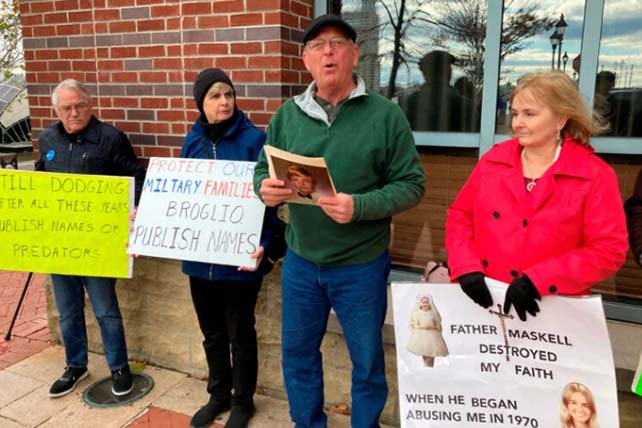(RNS) — In 2018, the Catholic world was reeling from the one-two punch of abuse allegations against Cardinal Theodore McCarrick and the scathing Pennsylvania grand jury report exposing Catholic clergy sexual abuse of over 1,000 children over the previous 70 years. That reckoning prompted a group of researchers from 10 Jesuit institutions to mobilize to look for ways to stem a crisis of clergy sexual abuse that is now reaching its fourth decade.
At Georgetown University, a priest began studying the healing effect of abuse survivors’ stories; an ethicist at New York’s Fordham University began investigating how Black survivors had been erased from the clergy abuse crisis; in Milwaukee, an interdisciplinary team at Marquette University started a workshop for Catholic teens on abusive power dynamics.
These projects are three of the 18 funded by an unnamed foundation and whose findings are published in Taking Responsibility, a 68-page report from Fordham University released in January.
The report includes case studies of abuse cover-up in Baltimore, Chicago and Omaha, Nebraska; research on topics such as moral injury; and guides for whistleblowing and for communicating about abuse. Though the report concludes with recommendations for Jesuit leaders, the findings, according to project director Bradford Hinze, a professor of theology at Fordham, can be applied broadly.
RELATED: ‘John Doe’ Forced To Give Full Name in Suit Alleging Clergy Sexual Abuse
Several of the projects fault clericalism, or the Catholic hierarchy, with fostering clergy’s sense of superiority, isolation and ultimately abuse. As part of the remedy, the report calls for priests and their institutions to confront survivors’ stories, both past and present, head-on.
The Rev. Gerard McGlone, senior research fellow at the Berkley Center for Religion, Peace and World Affairs at Georgetown University and a Jesuit priest, sees abuse survivors’ stories as sacred. “To me, placing survivors’ stories first is about cultural transformation,” he told Religion News Service. “It’s about having a community that believes those who have been harmed, rather than those in power.”
McGlone used his part of the grant to launch a study of more than 150 participants who engaged with survivors’ stories in video, written and listening formats. They also took pre- and post- surveys.
Preliminary findings, which McGlone called “staggering,” suggest that listening to survivors’ stories increases a person’s levels of spirituality and decreases their loss of meaning and sense of institutional betrayal.
“What was stunning in the research is that initially, the rates of moral injury of several different components that have been known in the field were lowered when the person heard and saw a survivor’s story,” McGlone said.
Most participants — many reached through advertisements in America magazine and National Catholic Reporter — were practicing Catholics. Yet engaging with the stories didn’t diminish their church attendance or beliefs. McGlone, who hopes the findings can be replicated in future studies, said they could have sweeping impacts.

